Polymer Science
Investigating polymers through a variety of fundamental scientific problems with real-world impact—from designing and creating new advanced materials to improving industrial processes to creating sustainable soft materials for an increasingly circular economy
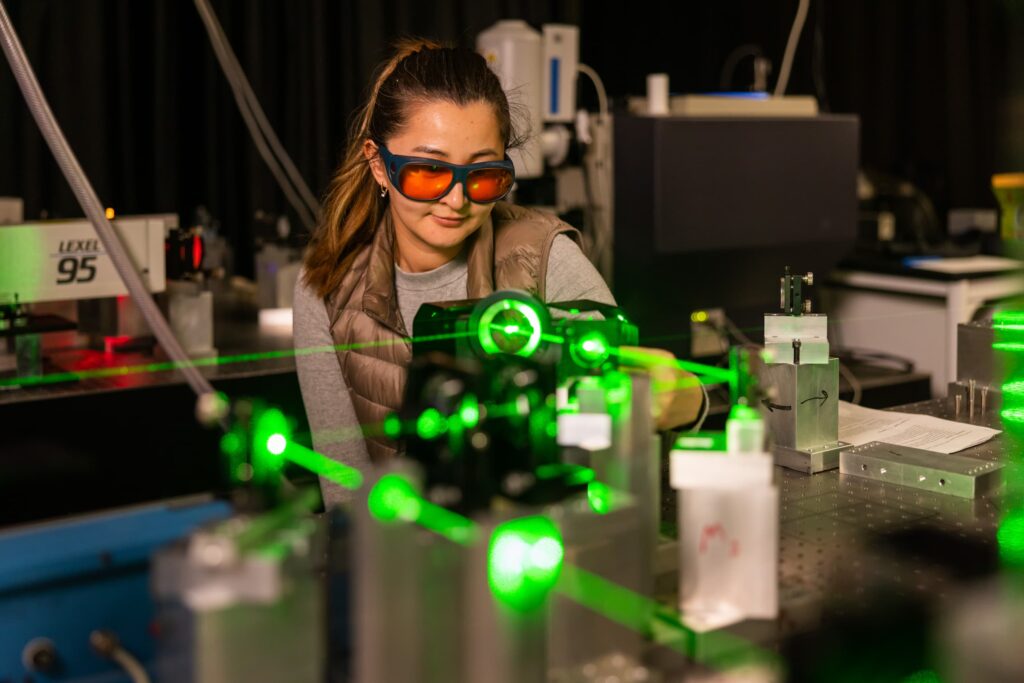
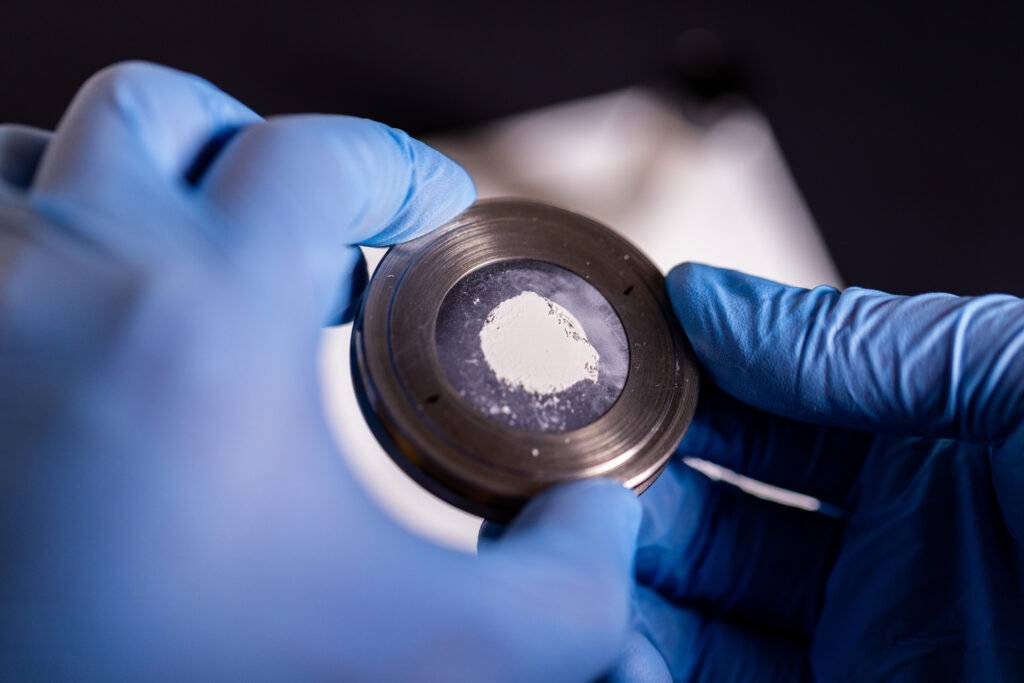
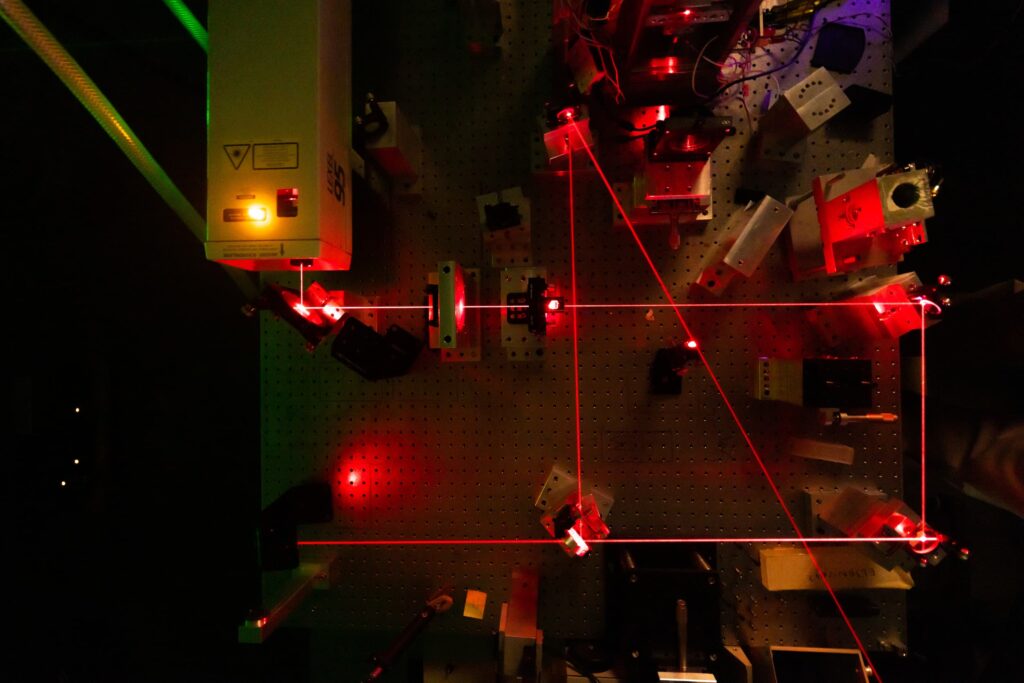
Polymer Science has implications for the fundamental understanding and design of novel polymeric materials for various current and future technologies—from gas separations and carbon capture to 3D printing and plastics upcycling.
UT’s world-class, interdisciplinary polymer science research merges chemistry, physics, chemical engineering, biosystems engineering, forestry, biomedical engineering, and veterinary medicine.
Our faculty and students concentrate efforts in diverse areas to tackle some of the most critical grand challenges facing society today, such as reducing greenhouse gas emissions, creating a circular plastics economy focused on sustainability, advancing additive manufacturing techniques and materials, and advancing regenerative therapies.
UT houses premier academic laboratories for characterizing polymers in terms of molecular weight, molecular weight distribution, conformation, size, and thermal properties. These capabilities serve a wide range of users from across the UT campus, as well as external users from industry and national laboratories.

UT’s Approach
UT researchers are developing new methods to aid recycling of waste plastics, improve the properties of new products and materials made from mixed plastic waste streams, and enhance the circular plastics economy. Polymer electrolytes are studied and applied for use in new generations of solid-state batteries and other energy storage technologies.
Researchers are also studying and developing new synthetic materials to create advanced gas separation membranes that will enable energy efficient and cost-effective separation of greenhouse gasses and reduce industrial greenhouse gas emissions.
Partnering with scientists from the College of Veterinary Medicine and the UT Medical Center, novel polymeric materials to revolutionize regenerative therapies in animals and humans are being developed, integrating materials science, biomedical research and practical medicine.
Highlights
Eastman Center Opens
At the Eastman Innovation Center on the UT campus, faculty and students are collaborating on projects with far-reaching economic and environmental impact, including the development of next-generation structural and functional materials that are sustainable for use in a variety of applications including automotive manufacturing.
New Process Could Strengthen 3D-Printed Materials
Scientists at UT and Oak Ridge National Laboratory have developed a new technique using UV irradiation that could strengthen bonds of 3D-printed materials to withstand 200 percent more transverse stress.
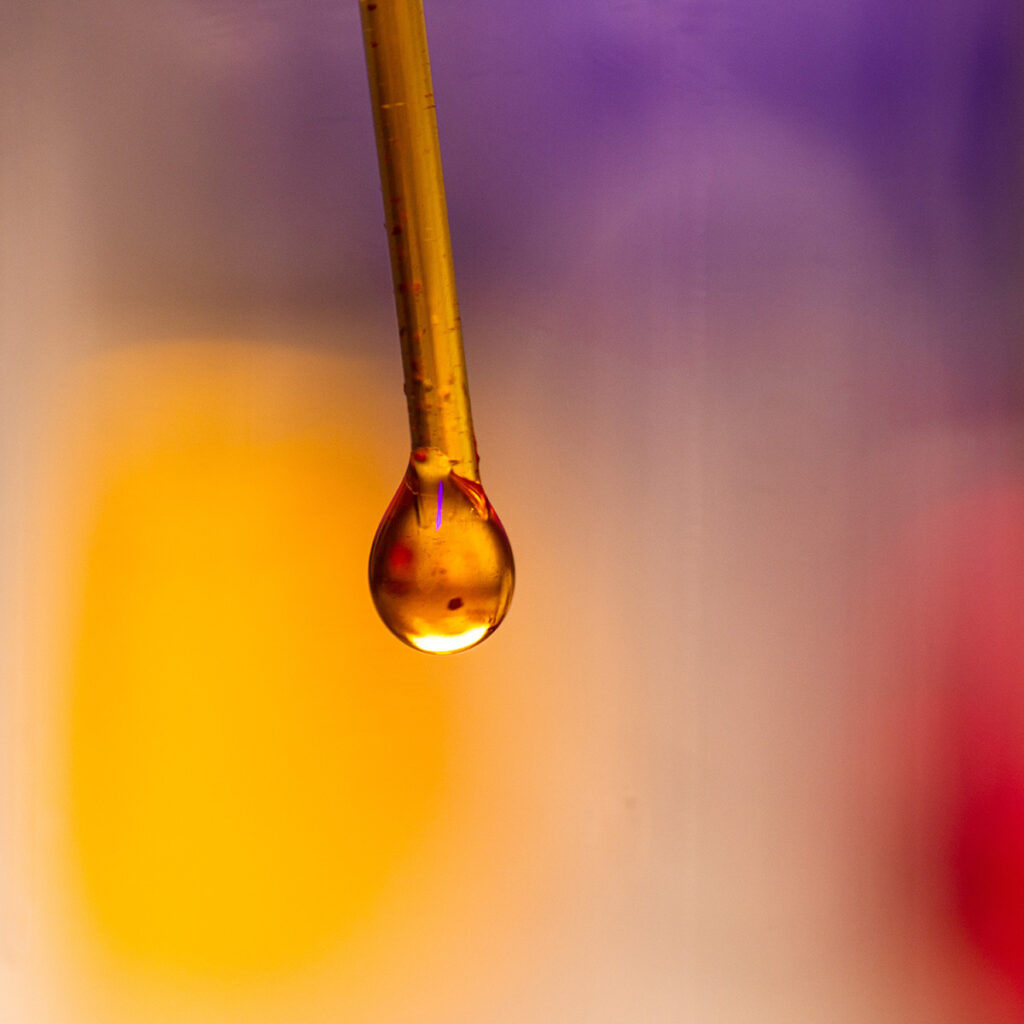
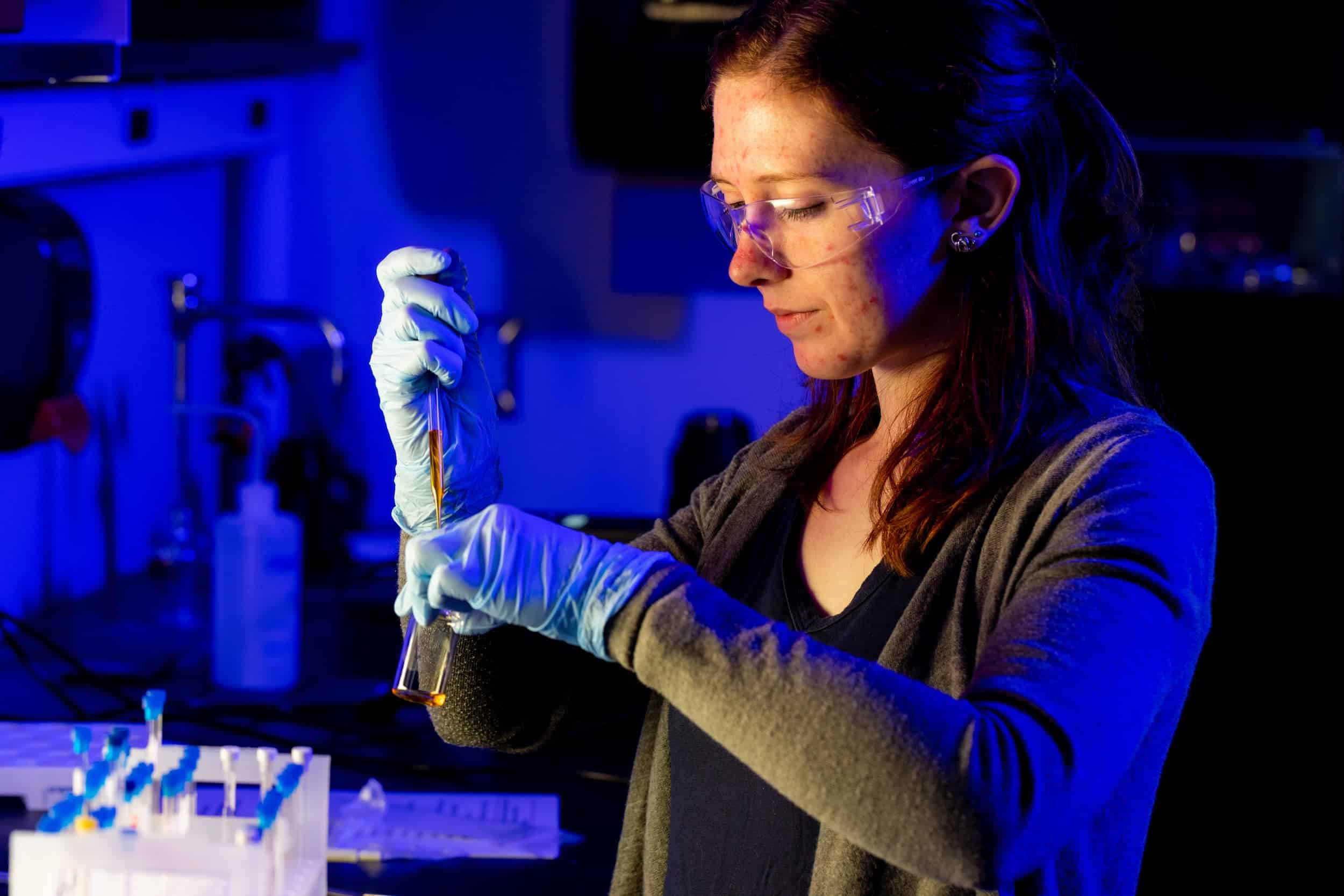
Talent
-
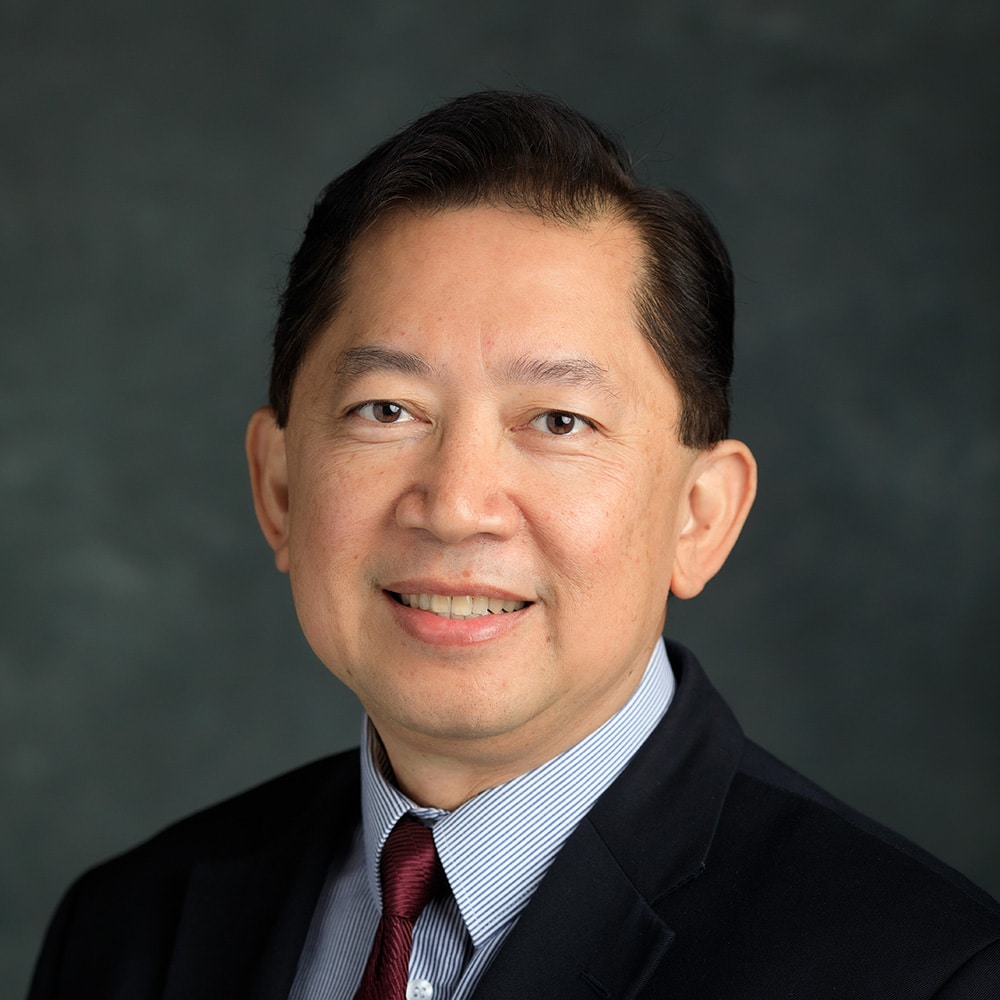
UT-ORNL Governor’s Chair for Advanced & Nanostructured Materials
Polymers, nanoscience, macromolecule science and engineering, organic materials, hybrid materials, ultrathin films
-

Associate Dean for Research, Professor, College of Veterinary Medicine
Biochemistry and cell biology, animal production, veterinary sciences, biomedical engineering, biomaterials, chemical engineering, food sciences, materials engineering, regenerative medicine, clinical sciences, pharmacology and pharmaceutical sciences
-

Assistant Professor, Chemistry
Addressing chemical problems at the interface of materials science and synthetic methodology
-
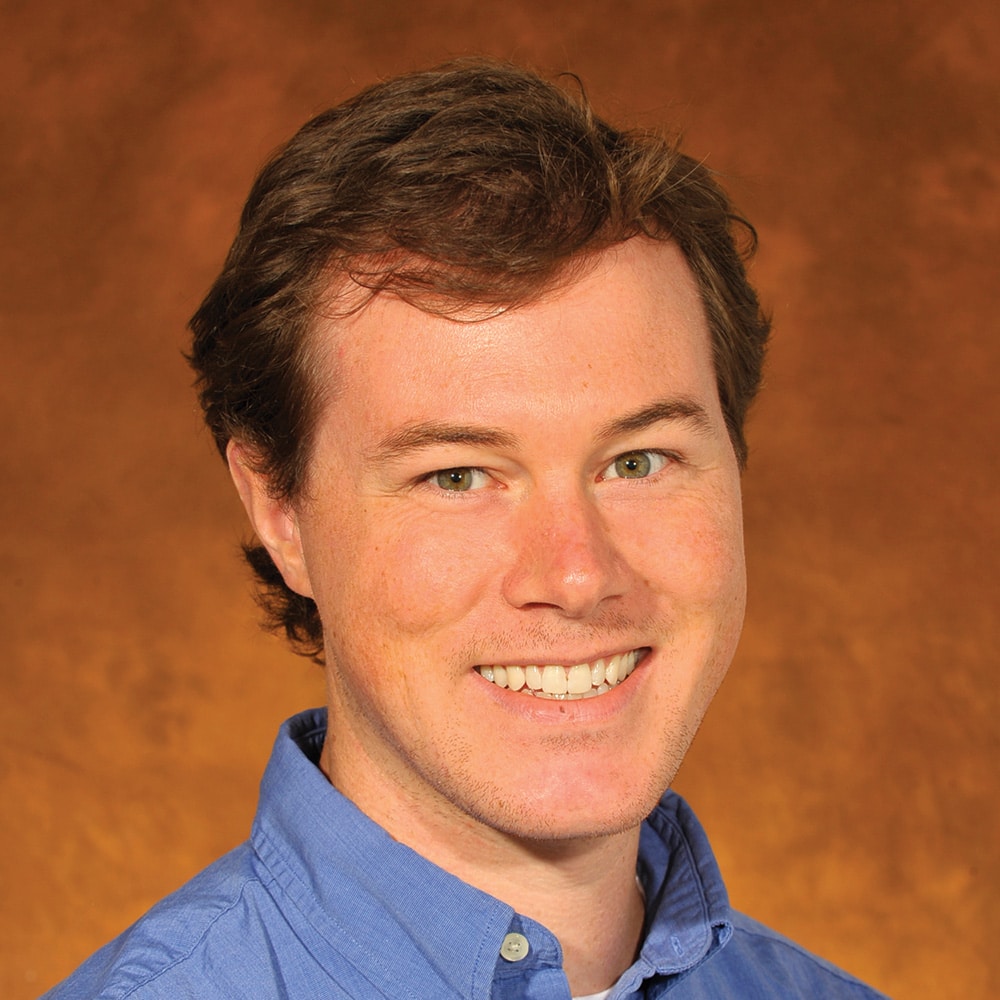
Associate Professor, Mechanical, Aerospace & Biomedical Engineering
Developing new high-performance materials for additive manufacturing technologies, printable fiber-reinforced polymer and ceramic matrix composites, multi-material hybrid structures
-
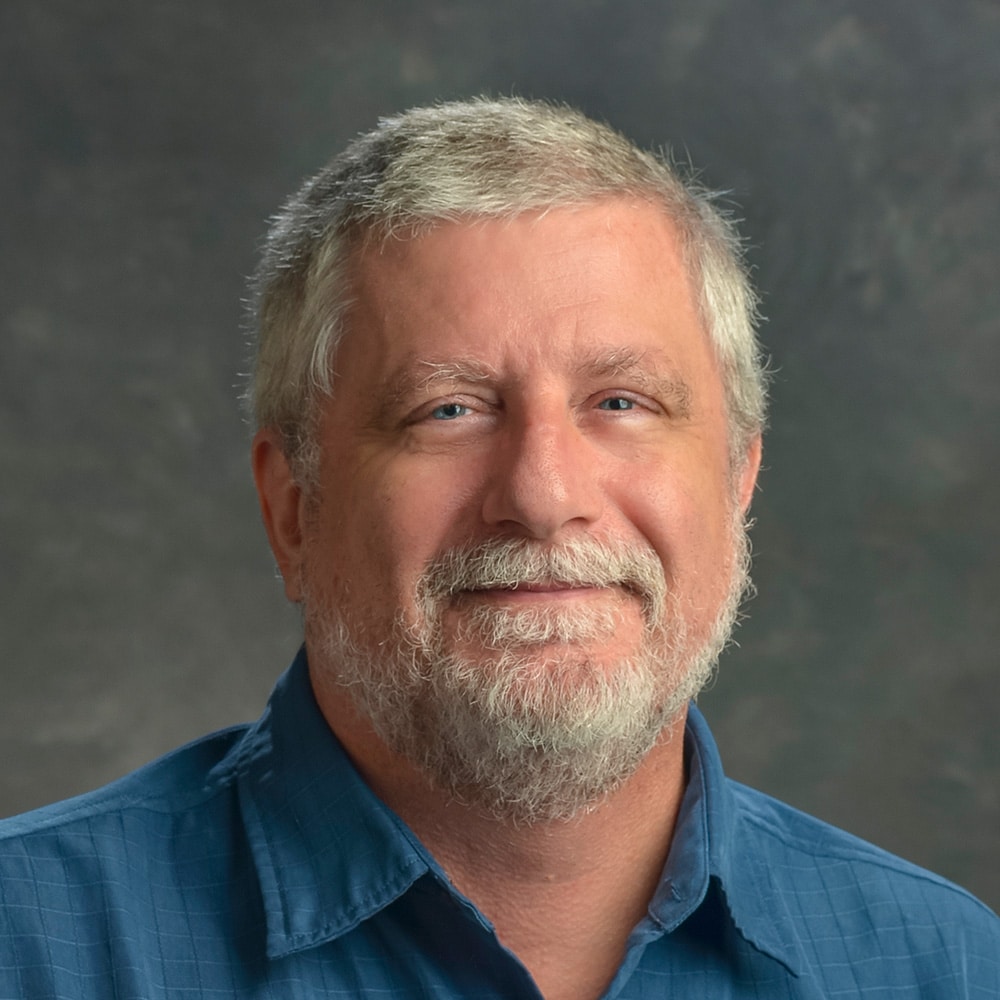
Professor, Chemistry
Organic photovoltaics and conjugated polymers, nanocomposites and block copolymers, lignin and renewable polymers
-

Research Professor, Large Animal Clinical Sciences
Advancing regenerative medicine, tissue engineering, cell-based therapies for treatment of disease
-

Associate Professor, Chemical & Biomolecular Engineering
Polymer melts, blends and nanocomposites, association of biomolecules in membrane environments, reaction-diffusion phenomena in patterning applications, development of novel algorithms for multiscale modeling, computational characterization of materials coupled to scattering experiments
-

Professor, Mechanical, Aerospace & Biomedical Engineering
Additive manufacturing of polymer and composite structures, new material development, melt flow characterization, optimizing process-structure-property relationships, tooling applications for large-scale additive manufacturing
-
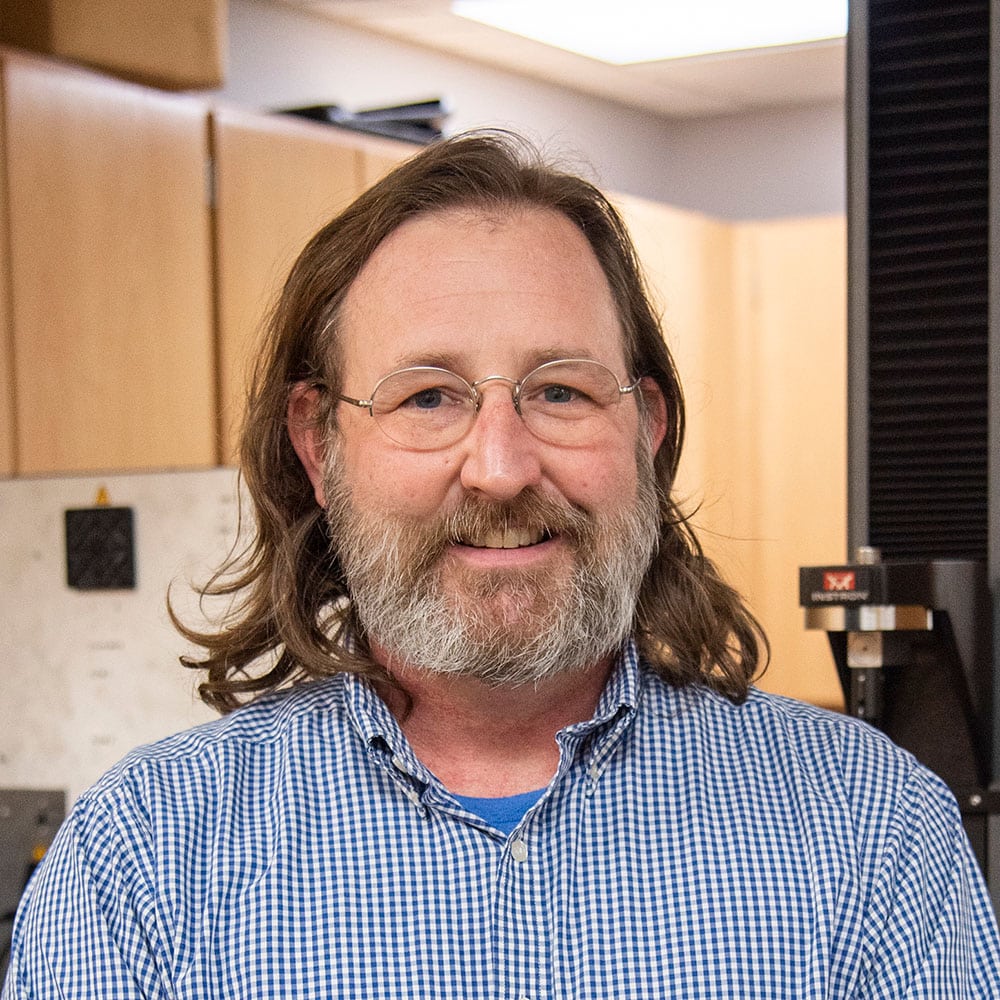
Professor, School of Natural Resources
Carbon materials, natural fiber composites, composite processing, biopolymers, adhesion, rheology, thermal analysis, kinetic modeling, mechanics
-
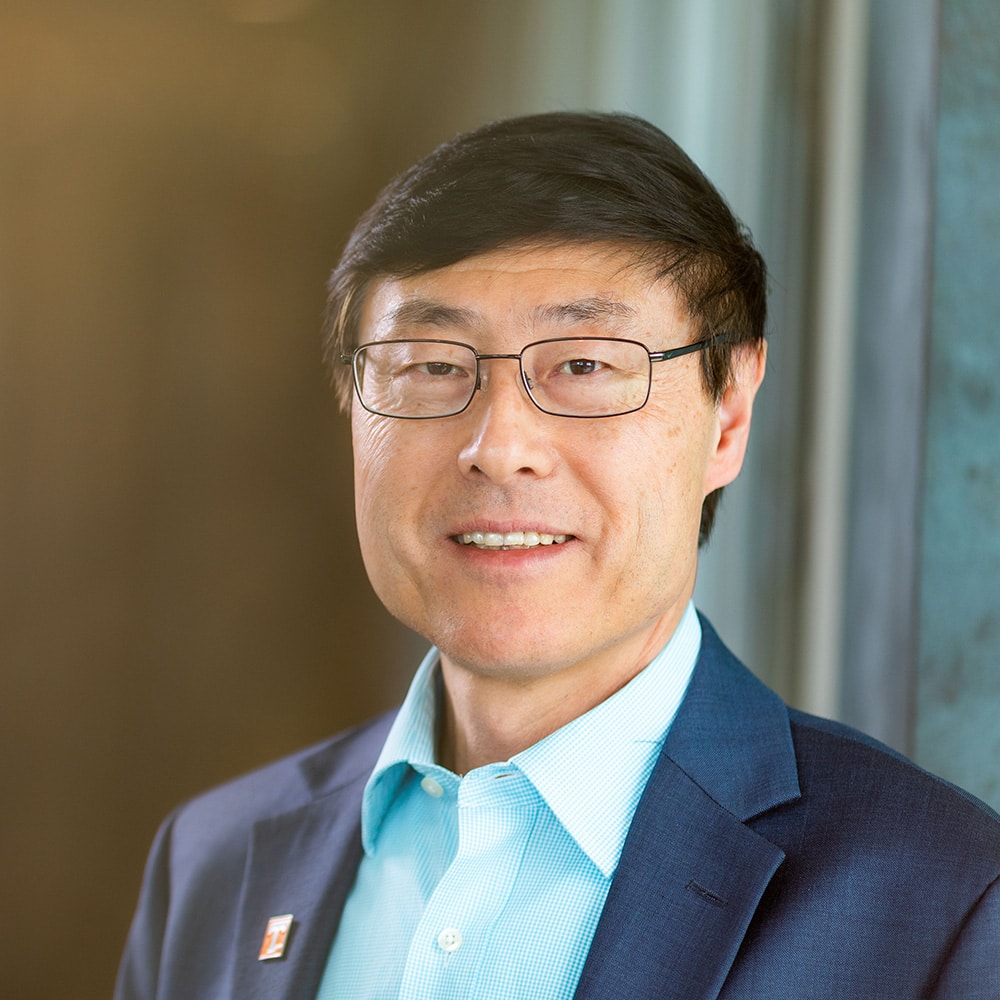
Professor, Materials Science & Engineering
Magnetic studies of exciton-exciton and exciton-charge interactions in organic light-emitting and photovoltaic devices, magnetic control of constructive and non-constructive excited state and charge transport processes in organic semiconducting materials, singlet and triplet photovoltaic channels in organic solar cells
-

Granger & Beaman Distinguished University Professor, Chemical & Biomolecular Engineering
Structure, dynamics and rheology of complex fluids and soft matte biohybrid energy harvesting materials; biohybrid materials for next generation quantum simulation and computing; single macromolecular dynamics and biophysics; multiscale modeling and simulation of complex systems; processing science of micro- and nano-structured material; renewable energy and additive manufacturing
-

Associate Head & Professor, Chemistry
Assembly-structure-property relationships of polymer brushes made by self-assembly and by surface-initiated polymerizations, swelling behavior of stimuli-responsive polymer layers and dynamics of preferential adsorption of amphiphilic block copolymers, surface behavior and characterization of conducting polymer thin films
-

Professor & Assistant Director, Center for Renewable Carbon
Novel approaches to deconstruct lignocellulosic biomass and fabricate bio-based products, high throughput techniques coupled with multivariate statistical analyses for monitoring biomass quality and performance at various scales
-
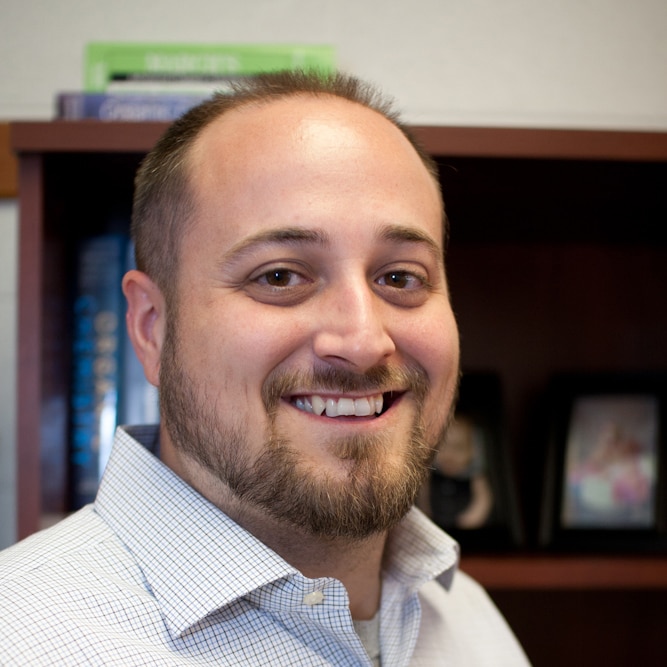
Associate Professor, Chemistry
Organic synthesis, polymer chemistry, organometallic design, polymer science and engineering, design and synthesis of functional polymeric materials, development and utilization of next-generation polymerization catalysts
-

Peebles Professor, IAMM Chair of Excellence, Civil & Environmental Engineering
Carbon fiber reinforced polymeric composites and sandwich structures, environmental degradation, and multi-scale mechanics, multi-axial stress-strain-time behavior of multi-phase and granular materials, non-invasive characterization and residual stress using neutron and x-ray tomography and diffraction, direct numerical simulations and porous media
-
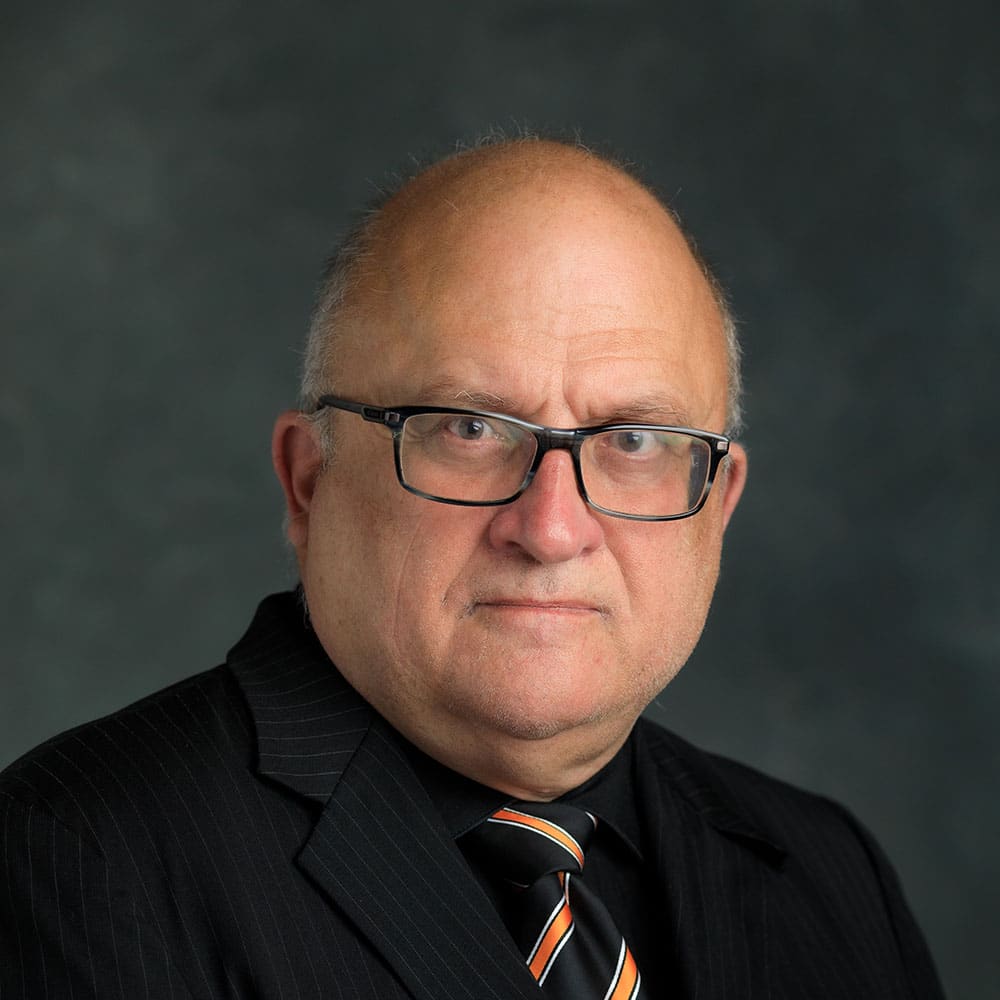
UT-ORNL Governor’s Chair for Biorefining
Chemical engineering, forestry sciences, environmental science and management, materials engineering, analytical chemistry, macromolecular and materials chemistry, organic chemistry, industrial biotechnology, food sciences
-
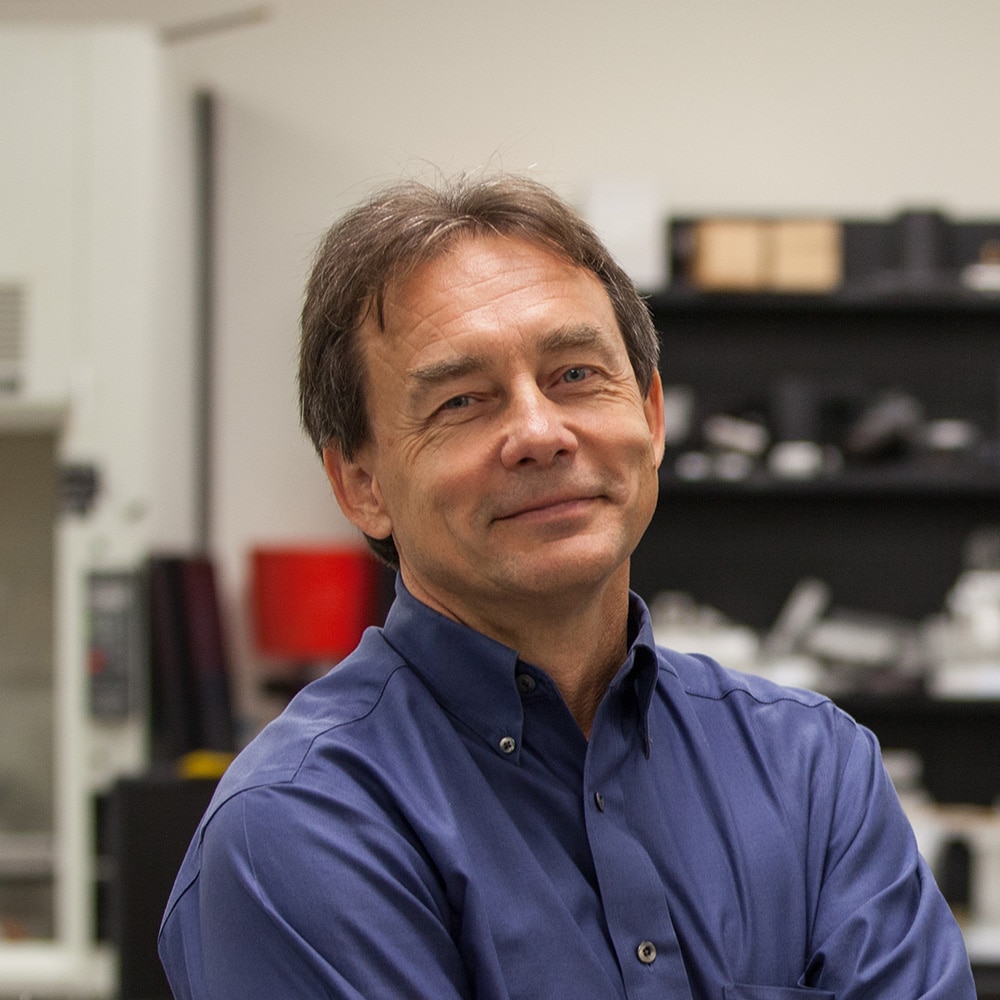
UT-ORNL Governor’s Chair for Polymer Science
Soft matter, glass transition and polymer dynamics, polymers with dynamic bonds as new recyclable materials, materials for clean energy technologies, membranes for fuel cells and flow batteries, membranes for gas separation, co2 capture and water desalination, dynamics and macroscopic properties of multicomponent polymeric materials, dynamics and functions of proteins and other biological macromolecules.
-

Professor, Chemical & Biomolecular Engineering
Self-assembly in polymeric systems, physics of confined polymers, thermodynamics of polymer blends, architectural design of polymers, lithographic materials, coatings, thin film membranes, x-ray scattering methods
-
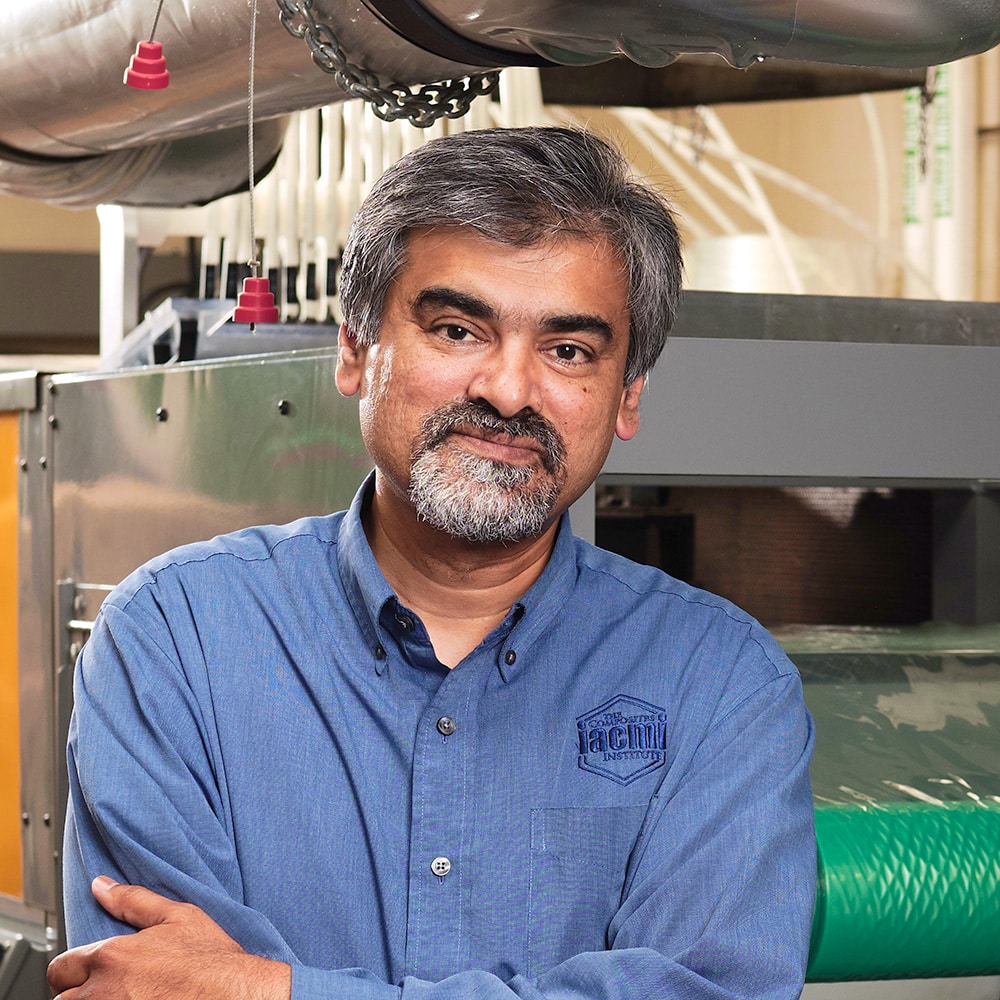
UT-ORNL Governor’s Chair for Advanced Composites Manufacturing
Composites manufacturing, design and product development, concept to part, recycling and sustainable technologies, , hybrids, engineered plastics and high performance materials
-
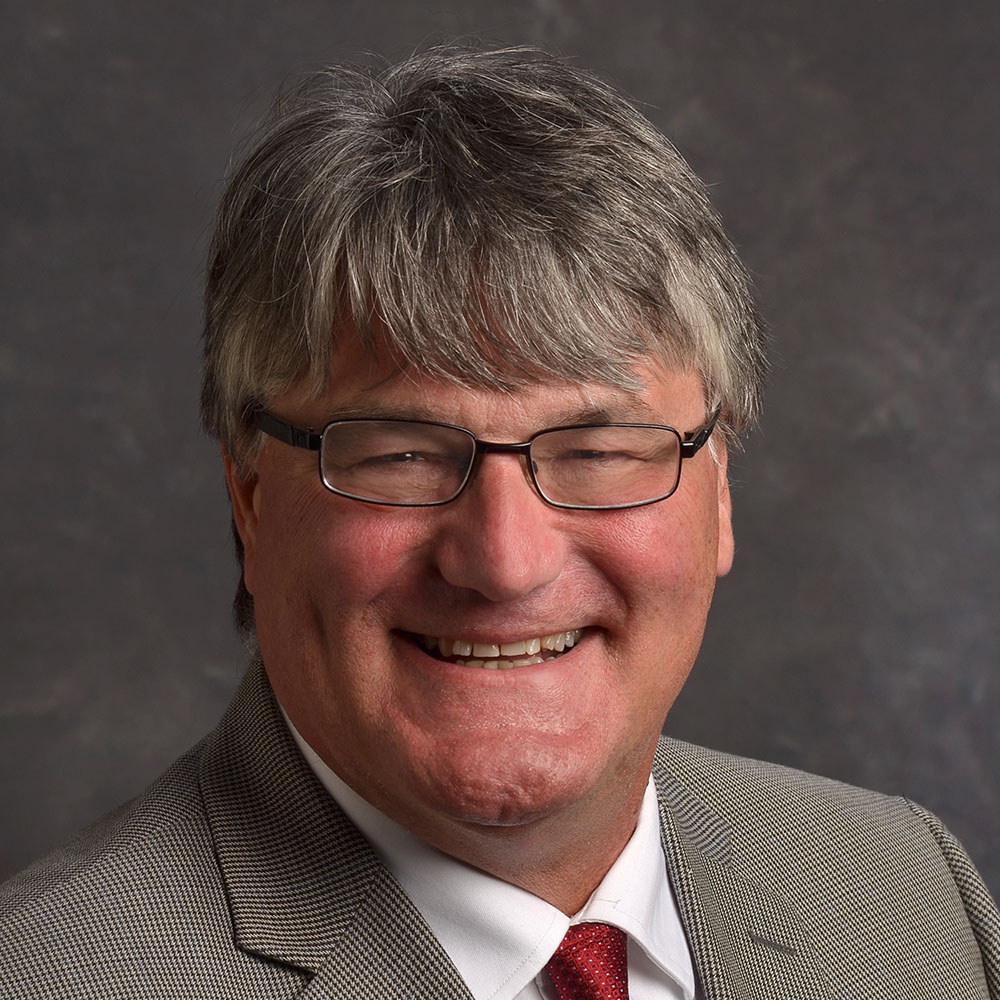
UT-ORNL Governor’s Chair for Electrical Energy Conversion & Storage
Electrolytes and composite electrodes for fuel cells, fundamentals of energy storage materials and systems, water management in fuel cells, application of NMR to chemical engineering problems
-
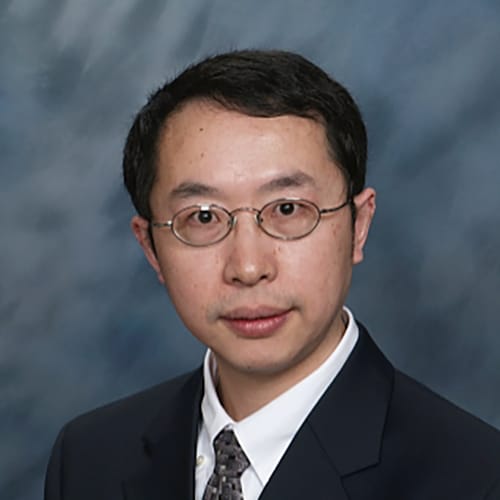
Professor, Chemistry
Responsive, functional organic, and organic-inorganic hybrid materials
